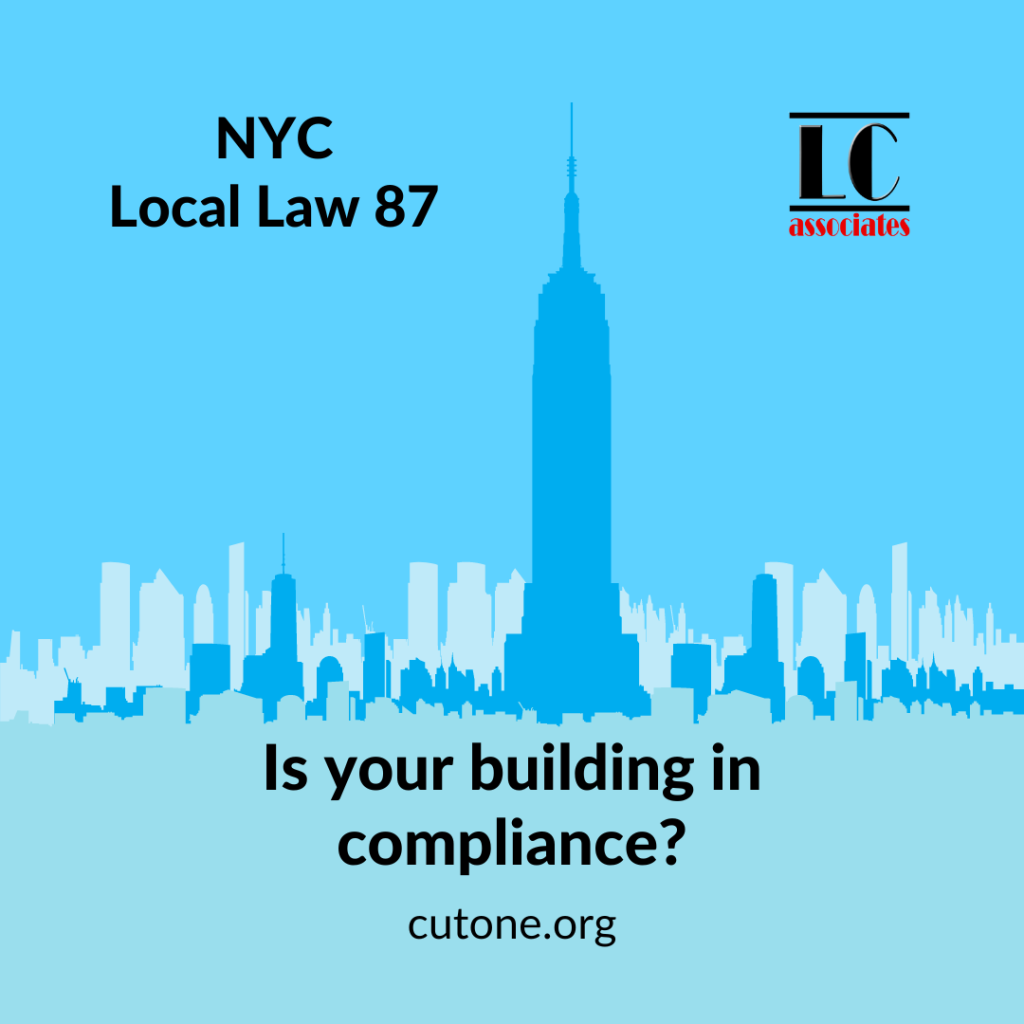



As a building owner in New York City, it’s crucial to stay up to date with the local regulations that affect your property. One such law that directly impacts energy efficiency and sustainability is Local Law 87 (LL87). In this blog post, we will explore the key aspects of LL87, including its purpose, requirements, and compliance deadlines. By understanding this law, you can ensure that your building meets the necessary standards and contributes to a greener and more sustainable future.
Local Law 87 was enacted to address energy efficiency and reduce greenhouse gas emissions in existing buildings. It applies to buildings that exceed 50,000 square feet in size. The law requires owners to conduct comprehensive energy audits and retro-commissioning of their properties. Energy audits evaluate a building’s energy consumption and systems to identify areas for potential energy savings. Retro-commissioning involves optimizing existing building systems to ensure they operate at maximum efficiency. By complying with LL87, building owners can identify and implement energy-saving measures, resulting in reduced energy costs and environmental impact.
Compliance with Local Law 87 follows a schedule based on the last digit of a building’s tax block number. In this regard, building owners are responsible for submitting an Energy Efficiency Report (EER) to the Department of Buildings (DOB). Prepared by a qualified professional, the EER meticulously outlines findings from energy audits and retro-commissioning activities. It is of utmost importance to meet specified deadlines and include the required compliance filing fee with the EER submission. Neglecting to comply with LL87 can lead to penalties and fines imposed by the DOB. Therefore, prioritizing adherence to the law becomes crucial for building owners.
Local Law 87 places significant emphasis on the importance of continual energy efficiency improvements in buildings. Consequently, building owners must conduct energy audits and retro-commissioning activities at least once every ten years to ensure ongoing compliance. By engaging in this regular evaluation and optimization of building systems, owners can promote long-term energy savings, curtail operating costs, and foster enhanced environmental sustainability.
New York City’s Local Law 87 is a vital regulatory measure designed to enhance energy efficiency and reduce carbon emissions in existing buildings. By complying with LL87, building owners play a crucial role in creating a more sustainable future. Understanding the purpose, requirements, compliance deadlines, and the significance of ongoing compliance empowers building owners to take necessary steps toward energy efficiency and achieve compliance. Ensure your building is in compliance with Local Law 87, contribute to a greener environment, and enjoy the benefits of reduced energy costs and improved sustainability.